
Children who have autism are not born with a parents manual to explain their unusual behaviors and abilities. However, Right from the Start provides an insight into why the child is different and how to help them regulate emotions, acquire social and play skills, and accommodate intense sensory experiences. This is the manual that parents need. Tony Attwood, PhD, psychologist and author of The Complete Guide to Aspergers Syndrome
This book is an intimate look at the real-life challenges for families of young children with autism. Its filled with very practical strategies on how to manage their behaviors. A must-read for parents, teachers, and caregivers of children who struggle with emotional self-regulation. Mary E. Bove, MD, Childrens Hospital of Philadelphia, CHOP Care Network, Delaware County
Coping with sensory issues is often a huge challenge for children with autism. This wise book written by a parent and a behavioral specialist consultant offers excellent sensory-motor suggestions to help children become more self-regulated and in sync. Carol Stock Kranowitz, MA, author of The Out-of-Sync Child
Parents of non-neurotypical children need to know they are not alone. This user-friendly book helps to meet that need. It also provides a myriad of ideas that parents and preschool teachers can use to help children regulate their emotions and behavior, develop key social skills, and manage sensory issues. The many real-life, compelling examples will stimulate parents and teachers own creative thinking about how to help their kids in ways consistent with current best practices. Susan S. Woodhouse, PhD, psychologist and associate professor of counseling psychology, Lehigh University
Right from the Start is an excellent resource full of specific strategies and written with a positive perspective. Any parent, teacher, or professional looking for guidance will find this book helpful, giving them hope and specific tools for moving forward with the challenges of raising or working with an autistic child. Robin Holcomb, MS, programs director, National Alliance on Mental IllnessUtah
RIGHT FROM THE START
Published by Rowman & Littlefield
An imprint of The Rowman & Littlefield Publishing Group, Inc.
4501 Forbes Boulevard, Suite 200, Lanham, Maryland 20706
www.rowman.com
6 Tinworth Street, London, SE11 5AL, United Kingdom
Copyright 2020 by Karin Donahue and Kate Crassons
All rights reserved . No part of this book may be reproduced in any form or by any electronic or mechanical means, including information storage and retrieval systems, without written permission from the publisher, except by a reviewer who may quote passages in a review.
British Library Cataloguing in Publication Information Available
Library of Congress Control Number: 2019949305
 The paper used in this publication meets the minimum requirements of American National Standard for Information SciencesPermanence of Paper for Printed Library Materials, ANSI/NISO Z39.48-1992.
The paper used in this publication meets the minimum requirements of American National Standard for Information SciencesPermanence of Paper for Printed Library Materials, ANSI/NISO Z39.48-1992.
To my mother, Elsa Ramsden, my inspiration, and to my children, Julia and Justin, the joys of my life.Karin Donahue
To my mom, Gloria Crassons, whose life work has shown me the importance of early childhood education. And to my children, Henry and Reed. These boys have taught me how to love with a depth I never knew was possible, and theyve shown me new ways of seeing the world.Kate Crassons
CONTENTS
Guide
W e decided to collaborate on this book after recognizing from firsthand experience that parents, teachers, and administrators need practical resources to help autistic children be successful. We met when Karin, a behavioral specialist consultant, began working with Kate and her husband to support their son, Henry. At age five Henry was diagnosed with mild autism or what would have been called Aspergers syndrome before that diagnosis was replaced by the broader category of autism spectrum disorder. As Karin helped to put various strategies into place at home and at school, Henrys behavior dramatically improved and his sense of self-worth increased.
Henry was able to make progress when everyone in his life, including family members, teachers, and school administrators, came to realize two key things. First, as a child with autism, Henry has unique needs, and his biggest challenges stem from his neurological difference, not from willfulness or bad choices made on his part. Second, it is not especially difficult to accommodate the needs of children like Henry at home and in a mainstream day care center or preschool, which is most often the educational setting for children on the milder end of the autism spectrum who dont qualify for early intervention or other special programs.
It is vital to broadcast these lessons to parents and educators as rates of autism and other neurodevelopmental conditions continue to rise. The latest statistics from the Centers for Disease Control and Prevention (CDC) show that one in fifty-nine childrenand one in thirty-seven boyshas autism, a marked increase from one in sixty-eight children in 2012. Rates of attention deficit hyperactivity disorder (ADHD) are even higher as 9.4 percent of children were diagnosed with the disorder in 2016. As this data suggests, neurodiverse or atypical children are, in fact, becoming more typical. And, in school or day care settings, these children are among the population of students who are most vulnerable to the ineffective disciplinary measures all too frequently imposed in the earliest years of learning.
Autistic children are among the population of students who are most vulnerable to the ineffective disciplinary measures all too frequently imposed during the earliest years of learning.
Preschoolers are expelled more often than elementary, middle, or high school studentsthree times more often, to be exact (). Given this troubling reality, it is not surprising that many autistic children get off to a rocky start when they begin their first ventures into day care or preschool. In some cases, children with autism might end up attending a number of different programs searching for the right fit, which never materializes. In other cases, families might give up on early schooling altogether, scrambling to find ways to care for children at home.
But no childs early life should begin with a sense of chaos and failure an idea that is at the heart of this book. We know that autistic children can be successful at home and in early learning environments when we put the right supports in place.
Combining professional expertise with a parents perspective, we offer real-world guidance so that autistic children can flourish in their preschool years. The strategies we provide to parents and educators are practical, evidence based, and easy to use. Though they address a range of topics, the techniques we discuss cohere in helping children develop the foundational skill of self-regulation, a term that refers to our ability to cope with feelings and reactions. Many current approaches to autism and education emphasize changing childrens behavior on the surface or gaining their compliance, but this book is grounded in a different idea: parents and teachers should help autistic children develop skills of self-regulation. If we give children the tools to recognize, assess, and moderate their feelings, we will set them on a path to success, enabling them to thrive from the first moment they set foot in a classroom.
Please see this books companion website:
www.rightfromthestartautismguide.com.
Next page

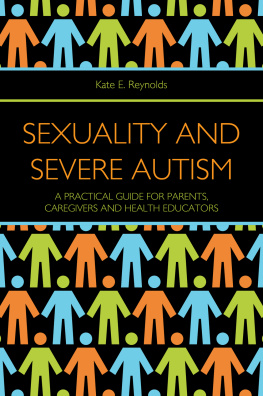
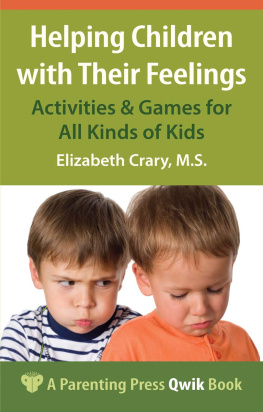
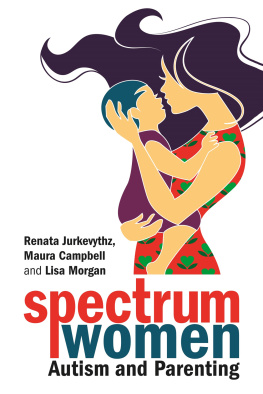
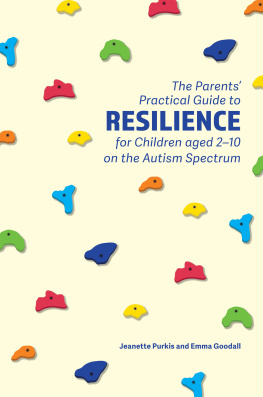
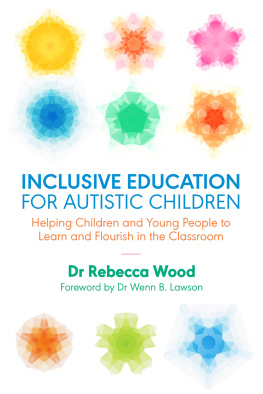

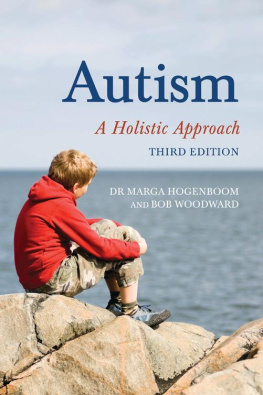
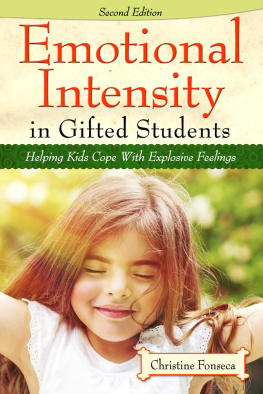

 The paper used in this publication meets the minimum requirements of American National Standard for Information SciencesPermanence of Paper for Printed Library Materials, ANSI/NISO Z39.48-1992.
The paper used in this publication meets the minimum requirements of American National Standard for Information SciencesPermanence of Paper for Printed Library Materials, ANSI/NISO Z39.48-1992.